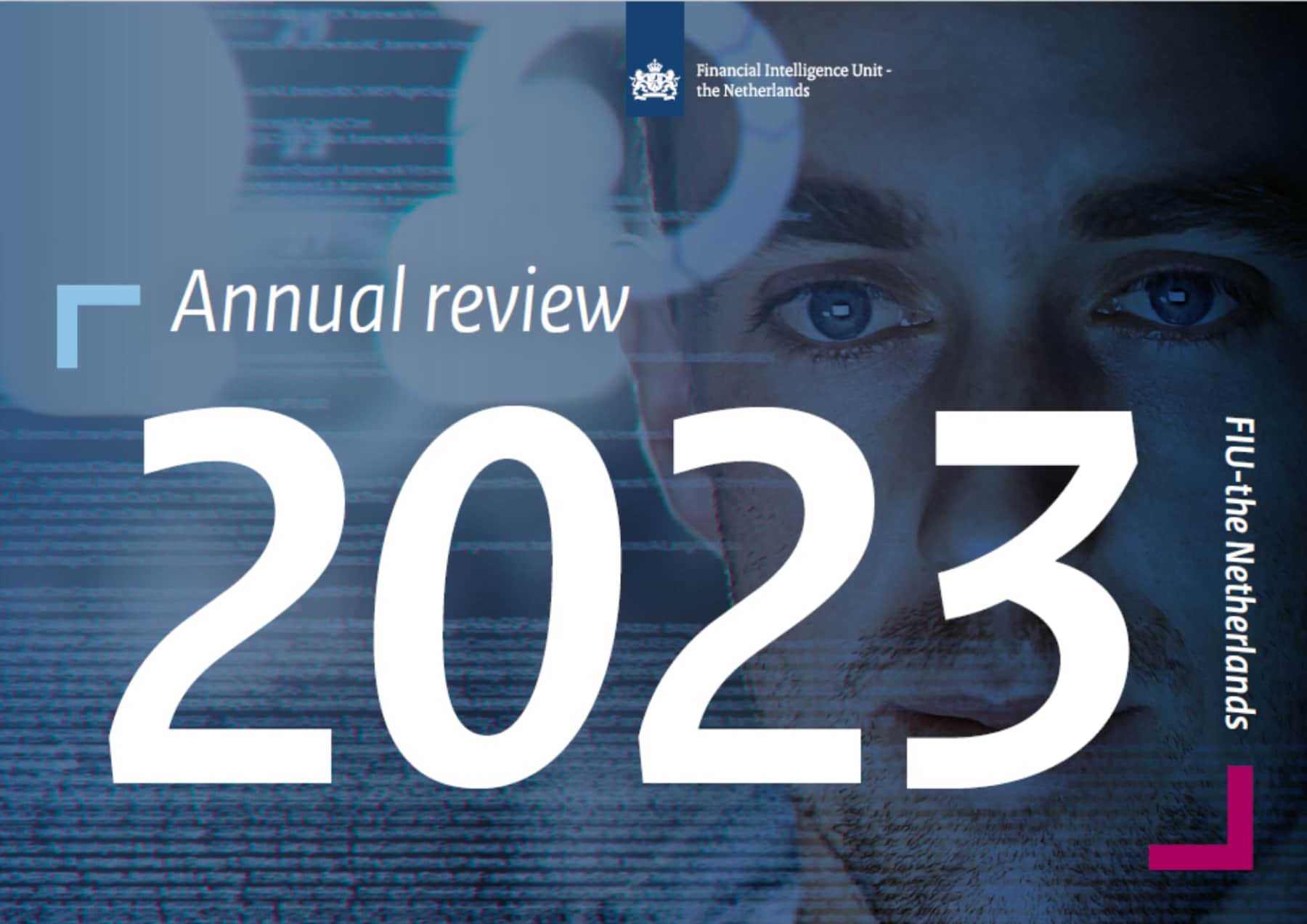Annual review 2023
Numbers, trends and phenomena of 2023

Almost two thousand obliged entities reported over 2 million transactions last year. In the same year, 180,578 transactions were declared suspicious after analysis. Financial intelligence emerging from these analyses made an important contribution to new insights into patterns of financial crime in 2023. These were shared with the investigative, intelligence, and security services. You can read more about this in our annual review published today, but three of them we would like to highlight here already.
Cash Compensation Model
In the annual review, FIU-the Netherlands mentions several developments. One of these is a money laundering methodology called the Cash Compensation Model. FIU-the Netherlands’ analyses showed that large, well-known companies in labour-intensive sectors such as construction and parcel delivery place work orders with (sub)contractors and pay for them via wire transfers. At these subcontractors, however, no or hardly any giro-based salary payments take place; employees are paid in cash. FIU-the Netherlands has indications that the cash used for this often has a criminal origin. This cash procured from criminals is compensated by the subcontractors through non-cash (invoice) payments. That money is used to buy (luxury) goods, services, or real estate or to finance criminal activities. In this way, criminals are compensated for the cash they brought in. Payments in these money laundering schemes often seem to be facilitated by underground bankers.
Work that our society partly runs on is paid for with criminal cash through these constructions. This again shows the intertwining of the underworld and the upper world in Dutch society. Besides money laundering, this phenomenon carries several risks such as labour exploitation, unfair competition, and fraud. FIU-Netherlands sees Cash Compensation as one of the ways by which legal entities are abused and by which the integrity of the financial system is compromised.
Organised healthcare fraud
A second aspect that emerged from analyses this year is indications of healthcare fraud. Developments related to this started earlier, but insights was further strengthened in 2023. For instance, FIU-the Netherlands saw healthcare fraud in an organised manner which regularly involved complex networks of multiple legal entities and in some cases showed a link to intertwining with serious organised crime.
International focus
Tackling money laundering and terrorist financing explicitly requires an international focus. Also in 2023, we regularly shared financial intelligence with foreign partners. A concrete example is the sharing of intelligence that contributed to countering shipments associated with sanctions circumvention and dual-use goods. One analysis involved a situation where aircraft parts were exported via intermediary countries. An illustrative example of sanctions evasion, an important topic on which we had operational cooperation with several FIUs in 2023.
In addition, analyses focused on terrorist financing also often have an international component or are even conducted in common. In the autumn, for instance, FIU-the Netherlands, together with other FIUs, contributed to setting up a task force aimed at tackling the financing of Hamas, among others. Insight into the financial abilities of terrorist organisations is essential in the future countering terrorist financing.
Read our complete annual review here
Also interesting
-

Scam alert: scammers pose as FIU- the Netherlands
Recently, several organizations have been contacted by email and phone by scammers posing as FIU- the Netherlands. For example, they ask for your ID or IBAN number. Or they want you to transfer money directly. Be alert to this. FIU-the Netherlands will never ask you for this information.
-

Why it is important that our website is also in Papiamentu
When developing on our new website, we decided to launch it also in Papiamentu. In this interview, our relationship manager for the Caribbean Netherlands explains why this is so important. He also explains what it means to be relationship manager for the islands.
-

Transaction description now mandatory
Starting today, reports of unusual transactions made based on the subjective indicator without a transaction description will be rejected.

